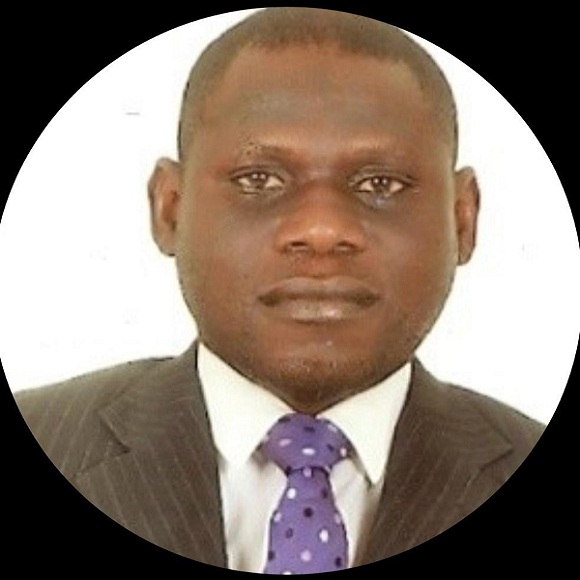Engr Adewale Bakare is a graduate of Electrical/Computer Engineering from Federal University of Technology, Minna with a Master of International Affairs and Diplomacy from Ahmadu Bello University, Zaria, Nigeria .He plies his game in the world of IT and could simply be described as a genius who is now a Theorist Researcher using his IT background to break boundaries on previously unproven theories.
His areas of expertise include Diplomacy, Global Governance, International Financial and Trade Organizations, Multilateralism and Regimes, North-South Relations, Peace and Security, Political Economy, Poverty and Inequality, The Responsibility to Protect, United Nations Reform.
In 2017 he was a semi-finalist nominee in both “The Global Challenges Prize 2018: A New Shape for Remodeling Global Cooperation” and The Educators’ Challenge Prize 2019″ by Swedish Global Challenges Foundation.
In an encounter with Engineers’ Forum, Adewale Bakare took us to the unknown and remarkable world of a cerebral theorist, who has solutions to global problems.
You are a theorist and researcher; what does that mean?
As a theorist, I had studied world events from different perspectives for many years (1999-2020), made assumptions and connected all happenings within this period for a common causal phenomenon that would explain an expectable outcome to predict, analyse and mitigate against global risks that we are all faced today (such as threats of Nuclear Weapon, Pandemics, Extreme Poverty, Terrorism, Global Conflicts, Global Financial and Economic, and Migration crises). However, as a researcher, I had embarked on an academic journey of linking the network concept in Information and Communications Technology to the fields of International Relations and Global Governance for building back better the UN we need, and the future we want.
Currently, I am an Expert on Modelling Global Governance 2.0 and Educational Tools (https://acuns.org/adewale-bakare/) with a groundbreaking performance in transforming Multilateralism, UN System and International Relations into a People-centred Multilateralism, UN 2.0 System and Intercontinental Relations.
In theory, you unmasked the Multilateralism 2.0 Vision that was previously impossible from Web 2.0 metaphor during Changing Multilateralism: The EU as a Global-regional Actor in Security and Peace project(The EU-GRASP with Project ID: 225722 that was funded between 2009-2012 under FP7–SSH by European Union Commission). What is the Multilateralism 2.0 Vision about and what problems will it address?
The vision in reality is to put the rights of world’s people at the center of UN System and Operations for a sustainable and equitable world. This vision is expected to transform our present state-centric UN Decision and Action Taking into a people-and-region-centric, or Democratic UN 2.0 System for solving global challenges and addressing global catastrophic risks through inclusive global cooperation.
The concept of this theory is based on your knowledge of the working of Linux application. What prompted your theorizing of the application into the Multilateralism 2.0 Vision?
Because Linux is built from open source as everyone is free to contribute to the development of the Operating System. So I was inspired to update our present global governance system and institutions to be inclusive, transparent and accountable in the 21st century.
Before the Covid-19 global pandemic, you had already theorized a solution to it. Does that solution still hold in reality?
Yes, it does because we need global cooperation that is people-centred to stop the virus from spreading, to develop the vaccine and the cure if any.
Part of what the theory seeks to address is multiculturalism and racism and today the world is talking about “Black Life Matters”. Again how can the theory be situated to address this?
The Unified World Approach is built on the equality and survival of all human race with special recognition and respect for world civilizations. Hence be you black or white, we are but one humanity with freedom, dignity and respect. Because, we need each other to move the world forward in economy, peace and justice.
Has the UN come to terms with putting this theory to solving global problems?
The UN has acknowledged the need to listen to the whole world during the UN’s 75th anniversary for the UN we need and the future we want. To achieve this goal, the UN has launched the biggest world conversation in the 21st century for everyone to express how they want the world to be to reach Agenda 2030 and beyond.
You are a member of the Academic Council on the United Nations System, ACUNS and your theory was also recognized by the Community Research and Development Information Service (CORDIS). What does this mean to you?
Good, its means a great victory for mankind that we, as human specie would survive difficult times that are ahead of us, only when we enhance global cooperation that is all-inclusive.
You received a recommendation from the Global Challenges Foundation Team to further the research work on remodelling global governance. What has been the outcome?
Yes, the recommendation as a semi-finalist in both global prize competitions encouraged me to further the research, to participate in the biggest world conversation at UN75.
How can this theory be applied to address the many challenges in the country (Nigeria) with frequent tensions occasioned by our diversities?
This theory can be applied only when people are allow to choose their forms of value system (economic, social and political system), allow unity of systems and give citizens the right for a referendum to either exit, or join a country or Union group in the future, instead of war. Something that is similar to the exit of Britain from the European Union.
Is there any research you are currently working on?
Yes, A Global Emergency for a People-centred Multilateralism: The Invocation of UN 2.0 System for Global Challenges at UN 75.
Below is the link of the presentation that Adewale delivered at the UN on the future we want to commemorate UN’s 75th Anniversary during 2020 Virtual Annual Meeting of the Academic Council on the United Nations System, ACUNS. https://www.researchgate.net/publication/344166873_A_Global_Emergency_Call_for_a_People-centred_Multilateralism_The_Invocation_of_UN_20_System_for_Global_Challenges_at_UN75










